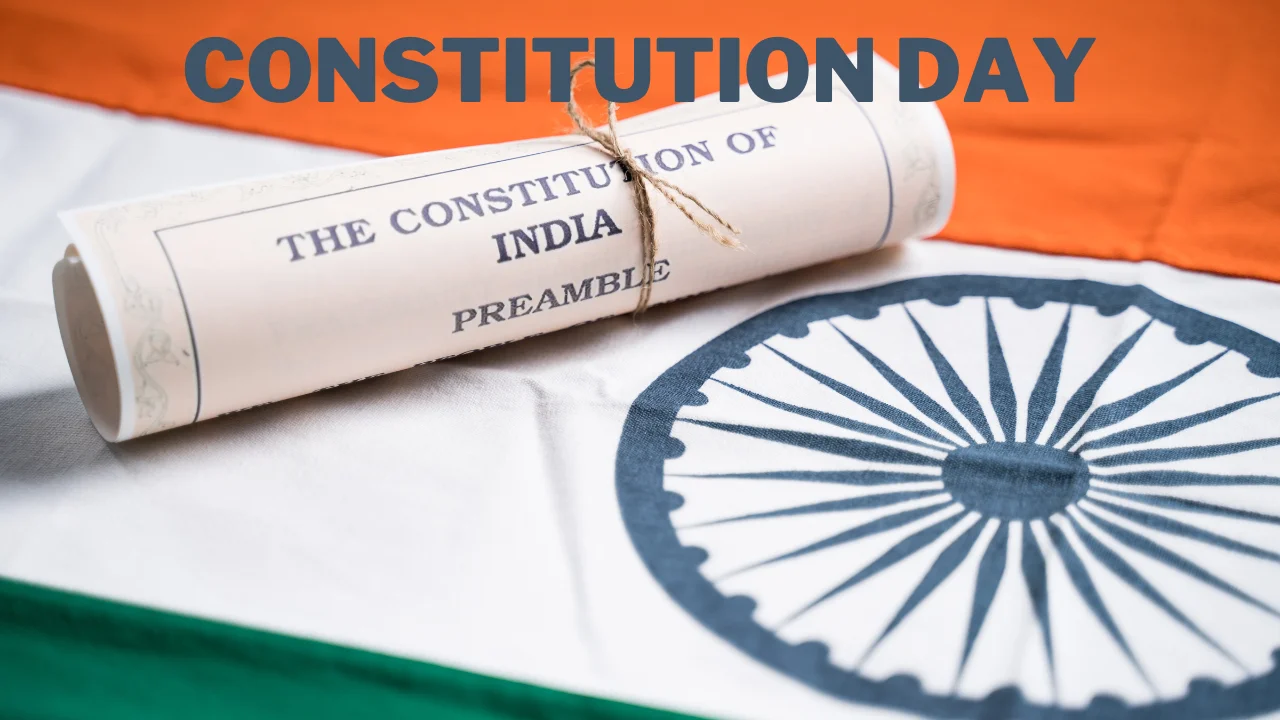Samvidhan Divas 2024
The Ministry of Law and Justice, in collaboration with the Indian Law Institute, is set to celebrate Constitution Day on November 26, 2024, at Vigyan Bhavan, New Delhi. This day marks the adoption of the Constitution by the people of India in 1949. Shri Jagdeep Dhankhar, the Vice President of India, will be the Chief Guest and deliver the keynote address in the plenary session during the celebration.
Indian Constitution Day 2024
As part of this year’s celebrations, a national-level transformative colloquium featuring five technical sessions is scheduled from 2 PM to 4 PM. This will provide an opportunity for legal luminaries, policymakers, and academia, among others, to deliberate on the reformative needs of our laws, with a focus on the Vision @2047. Additionally, two books titled ‘A Guide to Alternative Dispute Resolution’ and ‘Perspectives on Constitution and Development’ will be launched.
The Ministry, in collaboration with the Indian Law Institute, is organizing a debate on the theme ‘Limits to Liberty – Fundamental Rights vs Fundamental Duties’ for students of National Law Universities on the eve of Constitution Day. The winner of the first prize in the debate will receive Rs. 50,000, the second will receive Rs. 30,000, while the third prize winner will get Rs. 20,000 as award money.
Indian Constitution
The Indian Constitution is the supreme law of India. It lays down the framework that demarcates fundamental political code, structure, procedures, powers, and duties of government institutions. It describes the form of government, fundamental rights, directive principles, duties of citizens, and procedures for amending the Constitution itself.
History of the Indian Constitution
The Indian Constitution was drafted by the Constituent Assembly, which was elected by the people of India in 1946. The Constituent Assembly met for over two years and drafted the Constitution, which was finally adopted on November 26, 1949, and came into effect on January 26, 1950.
Drafting Committee of the Indian Constitution
The Drafting Committee of the Indian Constitution was a seven-member committee appointed by the Constituent Assembly on August 29, 1947, to draft the Constitution of India. The committee was chaired by Dr. B. R. Ambedkar, who is widely regarded as the “father of the Indian Constitution.”
Members of the Drafting Committee
- Dr. B. R. Ambedkar (Chairman)
- Alladi Krishnaswami Ayyar
- N. Gopalaswami Ayyangar
- K. M. Munshi
- Mohammad Saadullah
- B. L. Mitter (resigned due to ill health and replaced by N. Madhava Rao)
- D. P. Khaitan (died in 1948 and replaced by T. T. Krishnamachari)
Salient Features of the Indian Constitution
- Sovereign, Socialist, Secular, Democratic Republic: India is declared a sovereign, socialist, secular, and democratic republic. This means that India is self-governing, has a socialistic pattern of society, is not bound by any religion, and has a democratic form of government.
- Fundamental Rights: The Indian Constitution guarantees six fundamental rights to all citizens: Right to Equality, Right to Freedom, Right against Exploitation, Right to Religion, Right to Property, and Right to Constitutional Remedies.
- Directive Principles of State Policy: The Directive Principles of State Policy are not enforceable by the courts, but they are considered fundamental in the governance of the country. They guide the government to make laws and policies for the welfare of the people.
- Parliamentary Form of Government: India has a parliamentary form of government, which means that the executive is responsible to the legislature. The President is the head of state, but the real power lies with the Prime Minister and the Council of Ministers.
- Federal Structure: India is a federal country, which means that power is divided between the central government and the state governments. The central government has power over matters of national importance, while the state governments have power over matters of local importance.
- Judicial Review: The Supreme Court of India is the highest court in the country and has the power of judicial review. This means that the Supreme Court can review the laws passed by the Parliament and the state legislatures, and strike them down if they are found to be unconstitutional.
Amendments
The Indian Constitution has been amended 105 times since it was adopted in 1949. The process of amending the Constitution is quite rigorous, and it requires a special majority in both houses of Parliament.
Significance of the Indian Constitution
The Indian Constitution is a living document that has guided India through its journey of nation-building. It is a testament to the wisdom and foresight of the Constituent Assembly, and it continues to be a source of inspiration and guidance for the people of India.
26th November 2024 Special Day
On the significant day of November 26, 2024, India commemorates the adoption of its Constitution by the people in 1949. This momentous occasion reflects the nation’s commitment to democracy, equality, and justice. The Constitution stands as a guiding light, embodying the aspirations and principles that shape India’s governance. It is a day to celebrate the foundational document that lays the framework for the world’s largest democracy, symbolizing the values that unite the diverse tapestry of the Indian nation.
- Weekly Current Affairs 2025 PDF For Bank, SSC, UPSC Exams
- Unsung Heroes of India: 10 Unknown Freedom Fighters You Should Know
- 26 December Current Affairs 2023 in English
- Daily Current Affairs 2025, Check Today’s Current Affairs
- April Month Current Affairs 2024, Download PDF
- June Month Current Affairs 2024, Download PDF

Hello, I’m Aditi, the creative mind behind the words at Oliveboard. As a content writer specializing in state-level exams, my mission is to unravel the complexities of exam information, ensuring aspiring candidates find clarity and confidence. Having walked the path of an aspirant myself, I bring a unique perspective to my work, crafting accessible content on Exam Notifications, Admit Cards, and Results.
At Oliveboard, I play a crucial role in empowering candidates throughout their exam journey. My dedication lies in making the seemingly daunting process not only understandable but also rewarding. Join me as I break down barriers in exam preparation, providing timely insights and valuable resources. Let’s navigate the path to success together, one well-informed step at a time.






